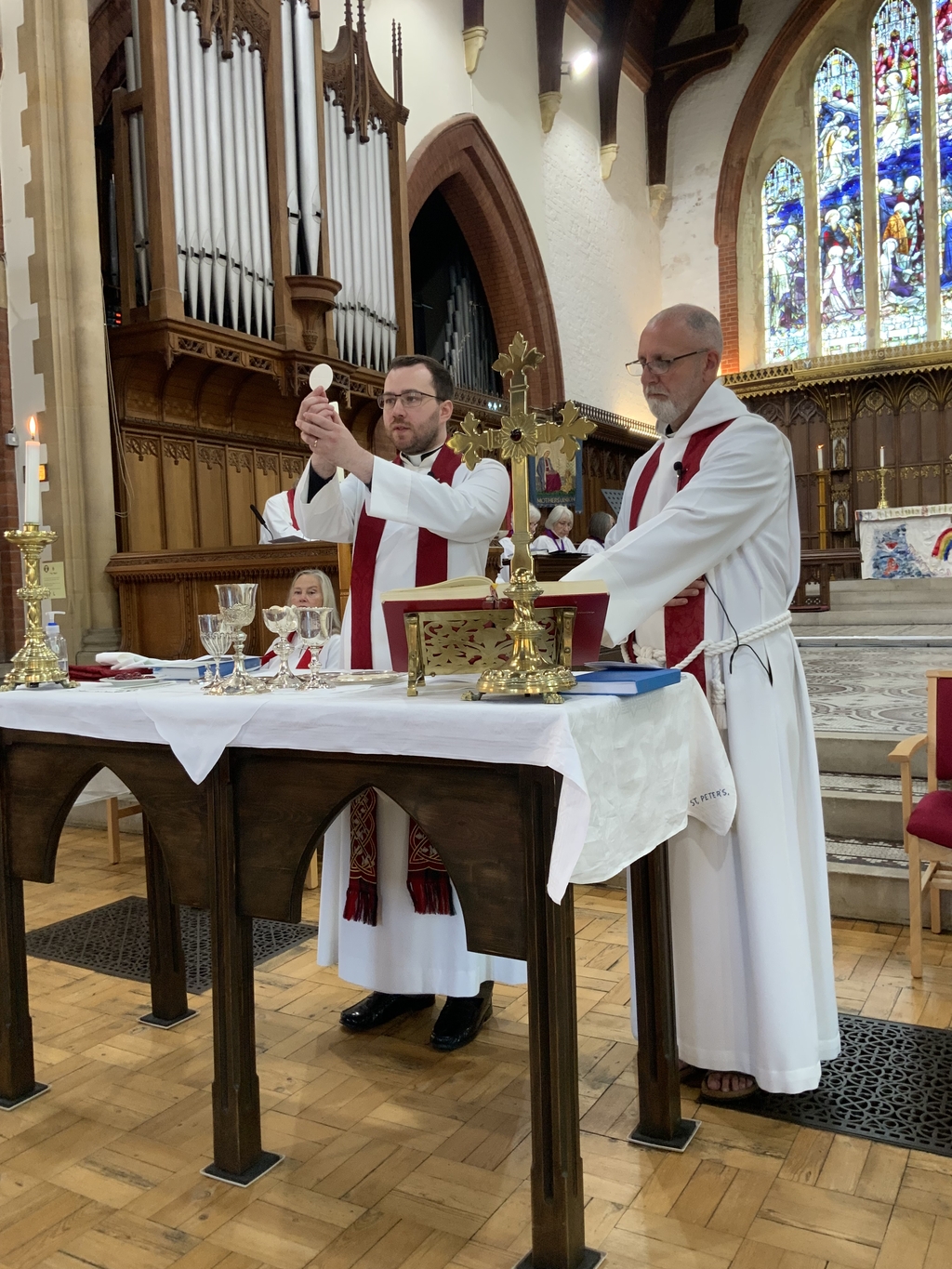Today in our Gospel reading taken from John, we read what is known as The Farewell Discourse. Here Jesus speaks to his disciples just before his arrest, trial and death. There is something profoundly beautiful and yet at the same time profoundly sad for us when hearing or reading this passage as we know where the narrative is heading. And we are having to watch or listen, knowing the disciples do not.
John's Gospel is known to stand out as being distinctive compared with the other Gospels of Matthew, Mark and Luke (known as the Synoptic Gospels), as in John's Gospel there is a real focus on the flesh running throughout, the sense that God is made known in the enmeshed life of the Word - Jesus in the world, and that life in the body is one of fullness and grace. This is not the incarnation as a moment of emptying or of giving up of the flesh, as sometimes Paul describes in New Testament writing, in John's Gospel, flesh is where all the action is, where the Word encounters and engages the world and as a result, Jesus' humanity, his body, his flesh, and ours, is considered sacred and holy, and is used to deliver a message.
And so here in this upper room, where the disciples are led, where the table is laid and food and wine available, Jesus knowing that his hour has come and that he is to be removed out of this world and go unto the Father, reclines and looks at his own that he loves and who he will love to the end. He sees that he needs to prepare them for his departure to show them how he wants them to live and be in his absence. This is our present reality, the Church's reality: living without the physical presence of Jesus and sustaining ourselves by remembering Jesus' words and actions. And Jesus needs to give the disciples something physical, something of the flesh to link in with his words so that they will remember. Something so out of the ordinary so as to stay in the mind as unusual, perplexing, and not be forgotten. "Unless I wash you, you have no share with me"
When I was around the age of 18, I worked as a care assistant in a nursing home and I remember clearly how uncomfortable I felt the first time I was asked to wake a resident up in the morning, wash, dress and bring them to breakfast. Everything was heightened. Every drop of water flowing into the sink, the feel of the flannel and soap, the uncertainty of how this person in front of me would react to me helping them undress. To gently touch the skin, the body of another person, to wash them, when once they could wash themselves, for them to trust me and for me to trust that they would guide me and let me know what to do and how to do it. Were my hands too cold, was I too quick or too rough? Too much soap or not enough? So much intense non-verbal communication as the physical act of washing and cleaning, something usually so basic and automatic took place. You get a sense of connection whether it be positive or negative very quickly in this act of love and care, for the other person it is near on impossible to remain hidden if someone else is washing you.
And here is Jesus, washing the feet of those he loved. A job usually done by a slave or young female with no interaction required or expected and certainly no eye contact. Peter just could not comprehend it. Jesus the Teacher, the Lord, washing his feet. There are some theologians who comment that they believe Peter is teasing in some way when he says "Lord, not my feet only but also my hands and my head!" considering it such a
ridiculous thing for Jesus to do but I do not see it this way. Like Peter, if Jesus was to tell me that to not wash my feet would mean I would have no share with him, no part with him, then I imagine myself to respond similarly and plead for him to wash every single part of me so as to be a thousand times sure that I would be with him, to have a share with him, to have a part with him.
Jesus knows that they will not understand until later, when he is gone. And so, through the act of taking the feet of the disciples in his hands, washing them and drying them tenderly and with love for each one, he instigates a completely inappropriate version of a cultural and religious act so as to impart what he wants them to do, what he wants them to be, for it to be stored as a multi-sensory memory in their minds, hearts and body, never to be forgotten.
When he is no longer in the world with them, he wants them to remember that none of them are greater than the other, that all of them must wash each other's feet - not in the literal act but in what the act of doing so brings out in both the giver and receiver. A tenderness, a gentleness, an intimate act of love that leads from one person to the other and back again. An act that changes both the giver and receiver. An act that will make it impossible to remain hidden from one another. For he has set us an example that we are also to do as he has done. It will likely make us feel uncomfortable at times, not just in the giving of this act of love but also in receiving it. Some of us if not all of us can find receiving it equally challenging.
But it is the commandment that Jesus has given us. And like John's Gospel and like the feet washing, it involves the flesh and body and is active and alive in all its fullness of expression. To love one another as I have loved you. This is a real, fleshy, human love imparted to us by the washing of feet, then later the breaking of bread and drinking of wine, so let us share in this and live out what Jesus gave the disciples on this his last supper: a call to action to love one another the way he loves us.
Natalie Rees 14/04/2022











